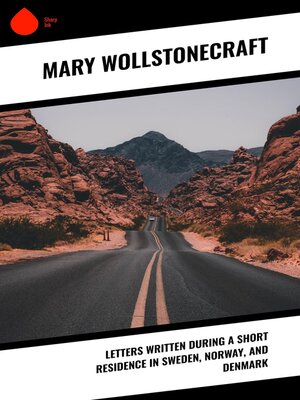Letters Written During a Short Residence in Sweden, Norway, and Denmark
ebook
By Mary Wollstonecraft

Sign up to save your library
With an OverDrive account, you can save your favorite libraries for at-a-glance information about availability. Find out more about OverDrive accounts.
Find this title in Libby, the library reading app by OverDrive.



Search for a digital library with this title
Title found at these libraries:
| Library Name | Distance |
|---|---|
| Loading... |
In "Letters Written During a Short Residence in Sweden, Norway, and Denmark," Mary Wollstonecraft presents a vivid epistolary account of her journeys through Scandinavia, blending personal reflection with socio-political commentary. Utilizing a poetic and introspective literary style, Wollstonecraft crafts letters that are both descriptive and analytical, revealing the stark contrasts between her native England and the landscapes and societies she encounters. The work is contextualized within the Enlightenment period, wherein questions of nature, society, and the condition of women are critically explored, echoing the themes of her seminal work, "A Vindication of the Rights of Woman." Mary Wollstonecraft, an advocate for women's rights and a notable intellectual figure, was deeply influenced by her experiences and the socio-political climate of her time. Her travels through Scandinavia not only enriched her understanding of cultural differences but also provided her with a broader perspective on liberty and equality, themes central to her philosophical pursuits. These letters serve as intimate glimpses into her thoughts, revealing the emotional depth and intellectual rigor she employed in her advocacy. This compelling travelogue is recommended for readers interested in the intersection of personal narrative and social critique. Wollstonecraft's eloquent prose invites readers to grapple with the prevailing notions of her time, making it a vital text for those who seek to understand the early feminist discourse and the complexities of the European landscape during the late 18th century.







